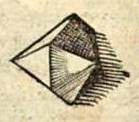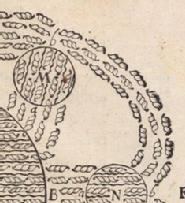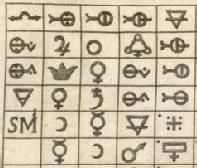Sample seminar questions
The following is a sample of the questions that we will be answering in the weekly seminars for this module. Students will be invited to suggest questions of their own. A complete list of seminar questions and seminar readings will be posted on these pages in summer 2015.
Renaissance origins
'Suddenly Aristotle seemed a very good physicist indeed, but of a sort I'd never dreamed possible.' What did Thomas Kuhn mean by this?
What was 'natural philosophy' and how did it differ from science as we know it today?
Who did science in the sixteenth century, and where did they do it?
Did humanism conflict with the values of early modern science, or were they complementary?
Did sixteenth-century scientists reject the learning of the ancients?
Why was Paracelsus so influential?
What role did drawing and painting play in natural history and anatomy in the sixteenth century?
How did the voyages of discovery in the fifteenth and sixteenth century change the way that Europeans studied the natural world?
What was 'natural magic' and how was it related to scientific experimentation?
Seventeenth-century changes
Why did natural philosophers have a low opinion of mathematics in 1500, and why had their opinion changed by 1700?
If the earth moves around the sun, why did so many people believe the contrary, and for so long?
Were Nicolas Copernicus' ideas 'revolutionary'?
'Science makes progress when it abandons metaphysics.' Discuss with reference to the seventeenth century.
If alchemy is a fraud, why was it practiced by so many leading scientists in the early modern period?
Was the Royal Society of London a product of the English Civil War?
How did the Royal Society of London differ from its Parisian counterpart, and what do these differences tell us about the relationship between science and the state in the seventeenth century?
What was 'experimental' about the experimental philosophy?
What do monstrous births and nautilus shells have to do with the experimental method?
What difference did the microscope make to the way that Europeans understood the natural world?
Did experimental natural philosophers rely less on written authorities than earlier natural philosophers?
Would Robert Boyle have been a better scientist if he had not believed in God?
What does the trial of Galileo tell us about the relationship between science and religion?
Enlightenment outcomes
Newton: what's the big deal?
Why did science become such a popular pastime in Europe in the eighteenth century?
Would the industrial revolution have happened if Newton had never written his Principia Mathematica?
Why did so many Enlightenment thinkers equate 'reason' with 'science'? What other definitions of reason did they reject?
'Science is amoral: it tells us how the world is, not how it should be.' Discuss with reference to the eighteenth century.
Did science make any difference to European expansion in the eighteenth century?
'There is no such thing as the Scientific Revolution.' Why have some historians reached this conclusion? Do you agree with them?
What happened in the second scientific revolution that did not happen in the first one?
 |
 |
 |
